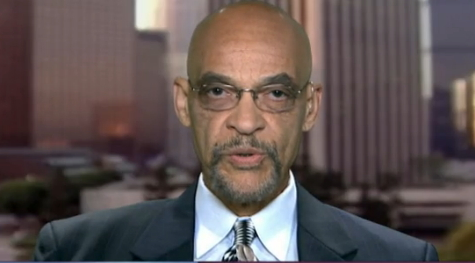It took months and months, and many tries for the House to finally get passage of the much-shelved George Floyd Justice in Policing Act. Now the real slog to get the bill into law begins. Start with the House, almost all the Democrats voted for the bill, and not one Republican voted for it. (The one who did, said it was a mistake and quickly changed his vote to oppose).
This might seem like a good start for the Democrats when the bill goes to the Senate, but it’s not. The Democrats one vote majority with Vice President Kamala Harris casting the tie breaker makes passage near impossible on a straight-line party vote. That’s because there are enough cautious, moderate Democrats who will almost certainly have deep reservations if not outright opposition to any thought of a radical rein in police funding, liability, and punishment. This is exactly what the major aim of the bill will do.
The bill already got muddied when Republicans and more than a few Democrats flatly warned that they would not support a bill that called for defunding the police. The perception that this was the Democrat’s aim was blamed for the defeat of a handful of Democrats in moderate swing districts in the presidential election. Democratic House leaders took great pains to assure that defunding the police had nothing to do with the Floyd bill.
Their protests won’t mean much when the bill gets to the Senate. GOP senators will scream loud that that’s exactly what the bill will do and hamper police work and recruitment even more. They’ll play hard on the public fear that any diminishing of police authority will put the public in mortal jeopardy. They’ll fan the public terror of violent criminals running loose in the streets.
There’s one more even more formidable hurdle: the police. Despite mountains of anti-police abuse protests, demonstrations, civil disturbances, proposed state, and congressional police reforms bills and measures, and even solemn pledges by police officials and unions to crack down on abusive officers, the record still stands that cops are nearly impossible to fire, discipline, let alone prosecute.
Police unions raise tons of money from their rank and file and a wide base of outside supporters. That money and power packs a wallop. They reward elected officials who tout them and punish elected officials who make even the mildest critical remarks about abusive police practices by pumping lots of cash into their defeat. They ensure that city and county budgets are bloated with funding for police operations, weaponry, and massive numbers of personnel.
Police unions have been wildly successful in watering down, if not outright killing, many police reform measures in state legislatures. That includes those in even the most liberal, Democratic controlled states such as California. Police unions bank that their broad general support of the public on policing guarantees that reform efforts won’t go too far. Nowhere is this more telling then when it comes to prosecuting cops who blatantly overuse deadly force.
Police have killed thousands of unarmed civilians in the decade since 2005 but according to a survey by The Washington Post and researchers at Bowling Green State University, only a handful of officers have been charged in the shootings and virtually all have been acquitted if they ever get to trial.
Here’s why. In 2010, a Bureau of Justice Statistics report found racial discrimination in jury selection is still rampant, even blatant. Little has changed since then. And prosecutors know it’s a tough hill to climb with jurors in police abuse cases and in surveys and interviews have said as much. This is one of the major reasons that they almost never bring charges against cops who kill even in the most blatant, outrageous and over the top killings.
During his four-year White House reign, Trump unabashedly stoked the fear that police in America are under siege by violent, lawless protesters. Trump loudly vowed to be the arch defender of the police against the lawless mob. GOP leaders took the cue and thundered away that gutting police operations will pose a colossal menace to public safety. This was just another replay of the Nixon law and order election ploy of the 1960s. It’s always assured of garnering much public resonance.
President Biden enthusiastically backs the Floyd bill. He said on House passage that he hopes to sign the bill into law. However, there’s no exact timetable for the Senate taking up the bill. But what is certain is that GOP senators will duck, dodge, delay, and ultimately say no to the bill. How many Democrats will do the same is anybody’s guess? What’s not guesswork is that getting a George Floyd law will be the toughest of slogs.
Earl Ofari Hutchinson is an author and political analyst. He is the author of Why Black Lives Do Matter (Middle Passage Press) He is the host of the weekly Hutchinson Report on KPFK 90.7 FM Los Angeles and the Pacifica Network. His political affairs commentaries can be found weekly on thehutchinsonreport.net.

